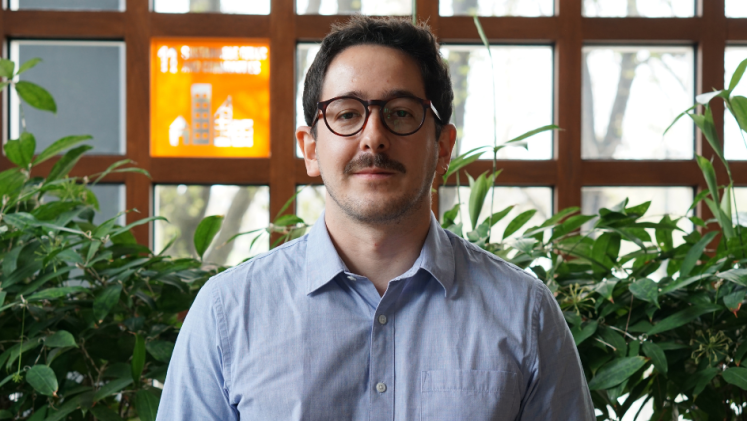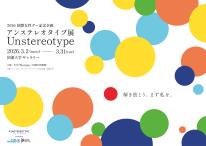In a recent conversation with UNU-EHS expert Lucas Turmena, he shared insights on the importance of maximizing his research impacts to contribute to the transformation of communities in his home country Brazil. Turmena highlighted the contributions made by the Transformative Urban Coalitions (TUC) project to the Brazil’s slum upgrading programme called Periferia Viva.
TUC, a project under the International Climate Initiative (IKI) and led by UNU-EHS, uses innovative approaches to address climate change while tackling local development challenges. This included establishing Urban Labs based on participatory practices, place-based innovation and collaboration between actors that usually do not work together. UNU-EHS and partners developed strategies to actively involve communities in creating sustainable and inclusive urban development projects. These strategies include maintaining a strong presence in the territories, engaging with existing leaders and organizations and including residents from the design to the implementation of interventions. The Ministry for the Cities and other organizations on the advisory committee of the Periferia Viva Programme have welcomed these approaches.
In a nutshell, could you explain the primary objectives and approach of TUC and why this is innovative?
TUC established five Urban Labs across Latin America, aiming to address complex climate change challenges, promote well-being and tackle inequalities. These labs serve as collaborative platforms, bringing together a diverse range of stakeholders, including local communities, government agencies, NGOs and academic institutions. The main advantages of the approach are its highly participatory, cross-sectoral and inclusive aspects, that result in co-creating innovative solutions tailored to the specific needs and contexts of people living in urban areas.
How did the collaboration with the partners come about, and what were the key outcomes?
Our local partner, WRI Brasil, was instrumental in establishing a relationship with the Brazilian Ministry for the Cities, providing an opportunity to share outputs from TUC labs in Teresina and Recife. In September 2023, we presented our learnings to the Secretariat of Peripheries during a workshop in Brasilia. This was crucial for articulating TUC’s principles with the Ministry’s slum upgrading programme.
UNU-EHS brought its expertise in mapping and engaging local actors to build trust and enhance participation in decision-making, particularly with the involvement of existing leaders and organizations that are already promoting positive impact. We used mixed methods to understand the local reality, ranging from technical assessments to collaborative mapping, which provided the necessary input for the co-creation of local interventions. This approach demonstrated TUC’s potential to transform communities and emphasized the importance of crafting community ownership and autonomy throughout the process, from design to implementation and maintenance.
These experiences show the importance of place-based innovation and solutions developed not just for, but also with the community. The Urban Labs’ continuous learning approach allowed for testing strategies to integrate climate action into urban development investments. Both TUC and Periferia Viva share the principle that climate action must address the needs of the most vulnerable, reducing their risks while improving quality of life. This includes prioritizing investments, such as green infrastructure, green spaces and sustainable transportation, which benefit the population regardless of climate-related risks.
What is the scope and scale of the Periferia Viva Programme?
Brazil’s rapid urbanisation since the 1970s has been marked by significant socioeconomic inequalities, with many rural migrants forced to settle in informal and often hazardous urban areas due to a lack of adequate housing policies. These challenges continue to impact urban development in the country.
The Periferia Viva Programme is a comprehensive initiative involving 58 communities across 44 municipalities in all five Brazilian regions. It focuses on upgrading informal urban settlements by investing in disaster risk reduction, climate change adaptation and nature-based solutions – ultimately aiming to improve living conditions and resilience in these communities.
How has the TUC Project’s experience been translated into practical guidance for the Periferia Viva Programme?
The lessons from TUC have been documented in a guidebook co-authored by UNU-EHS researchers, offering a step-by-step approach for local governments and technical assistance organizations in the implementation of the Periferia Viva Programme. Additionally, a training course is being developed in collaboration with WRI Brasil and other partners. This course, available on the Brazilian portal for sustainable urban development will equip stakeholders with the knowledge to apply the programme’s innovative approaches.
Looking ahead, what are the prospects for the Periferia Viva Programme and similar initiatives?
The prospects for the Periferia Viva Programme are promising. By integrating policies across ministries and leveraging significant investments, the programme can transform vulnerable and informal settlements. The locally-based office for community engagement and cross-sectoral collaboration, inspired by Urban Labs, offers more just and context-specific solutions, enhancing efficiency. We hope the principles developed through TUC will serve as a model for other regions facing similar challenges, promoting resilience and sustainability.



